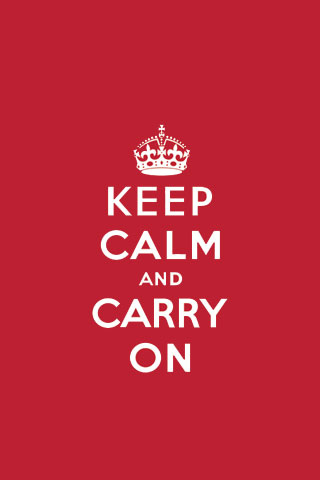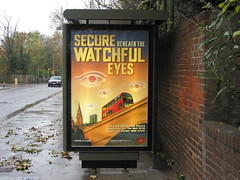The Null Device
Posts matching tags 'nostalgia'
2010/5/10
As parts of its Why We Fight column, exploring the cultural flashpoints of (for want of a less loaded word) hipsterdom, Pitchfork has a piece charting the rise and metamorphosis of irony, and exploring the significance of knowingness. The timeline it posits looks like this:
Or, in other words, if this theory holds, Gen Y aren't only the first generation of digital natives, but also the first generation of ironic natives (or perhaps post-ironic natives, though that title might apply more to GenXers who came out the other end and made an accommodation with sincerity via their McSweeney's subscriptions). That is, for values of "first" meaning "since the mid-20th-century".
- Americans born from the late 50s to mid-70s grew up in a world where a lot of old certainties about society, work, family, and life had been eroded-- by big social changes in the 60s, by economic decline, by lots of things. And yet these people were still raised on culture full of old "certainties" that suddenly looked really, really false and corny. Elvis-impersonator corny, After-School Special corny. So they developed a kind of irony and skepticism, floating around smirking but rarely committing to anything. Some of them were good enough at it that, by the late 80s, it'd become an actual cultural aesthetic, a sort of slacker knowingness that could get as mainstream as, say, "The Simpsons".
- Those were Gen Xers, mostly. But even as people slightly younger than them grew up, through the 90s, on a steady diet of that attitude, some folks started to notice a kind of futility in the whole thing, a defensiveness, an emptiness, an inability to embrace anything-- at which point you could suddenly read thousands of words of David Foster Wallace on how damaging it might be, how much we needed to tap back into the kinds of "basic human verities" that actually helped us lead meaningful lives. Some people even started predicting the rise of some "New Sincerity."
- In fact, some of the people who spent the 90s trading in exactly that knowing, snarky sensibility recanted, and started going around bug-eyed, warning everyone about leaving it behind-- raving about climbing out of the hole they'd fallen into, somewhat oblivious to the fact that younger people weren't in the hole with them. Younger people knew how to be ironic and sincere both, and were digging themselves entirely new holes to deal with.
(Other Why We Fight essays on Pitchfork include: why Joanna Newsom is seen as pretentious and Lady Gaga isn't, and the aspirational qualities of shifting musical taste as a sort of hipster arms race.)
In an entirely different negotiation between irony and sincerity, Czechs trying to balance nostalgia with unease for the Communist regime that was imposed on them can now holiday in authentically preserved Communist-era holiday resorts, albeit with better service and a measure of ironic detachment (in the form of singing, dancing Lenin impersonators):
She is upset because I've asked if she was bothered by the bust of Stalin in the hotel lobby. "It's our history and it's inside us," she continues, still brandishing the sausage.
2009/9/17
 An article in Radical Philosophy (a journal of "socialist and feminist philosophy") looks at the phenomenon of those Keep Calm And Carry On posters, and what the reprinting and near-ubiquitous popularity of a WW2-era propaganda poster that was never originally released says about contemporary British society, alienation from the consumer-capitalist values of Thatcherism-Blairism, and a displaced longing for an imagined utopia of benign paternalistic bureaucracy and modernistic optimism that happened (as all golden ages happen) decades before those contemplating it were born.
An article in Radical Philosophy (a journal of "socialist and feminist philosophy") looks at the phenomenon of those Keep Calm And Carry On posters, and what the reprinting and near-ubiquitous popularity of a WW2-era propaganda poster that was never originally released says about contemporary British society, alienation from the consumer-capitalist values of Thatcherism-Blairism, and a displaced longing for an imagined utopia of benign paternalistic bureaucracy and modernistic optimism that happened (as all golden ages happen) decades before those contemplating it were born.
Initially sold in London by the Victoria & Albert Museum, the poster only gradually became the middlebrow staple it is now when the recession, euphemistically the ‘credit crunch’, hit. Through this poster, the way to display one’s commitment to the new austerity was to buy more consumer goods, albeit with a less garish aesthetic than was customary during the boom. It is in a sense not so different to the ‘keep calm and carry on shopping’ commanded by George W. Bush both after September 11 and when the sub-prime crisis hit America – though the ‘wartime’ use of this rhetoric has escalated during the economic turmoil, especially in the UK. Essentially, the power of ‘Keep Calm and Carry On’ comes from a yearning for an actual or imaginary English patrician attitude of stoicism and muddling through, something which survives only in the popular imaginary, in a country devoted to services and consumption, and given to sudden outpourings of sentiment and grief, as over the deaths of celebrities like Diana Spencer or Jade Goody. The poster isn’t just a case of the return of the repressed, it is rather the return of repression itself, a nostalgia for the state of being repressed – solid, stoic, public-spirited, as opposed to the depoliticized, hysterical and privatized reality of Britain over the last thirty years. At the same time as it evokes a sense of loss over the decline of this idea of Britain and the British, it is both reassuring and flattering, implying a virtuous (if highly self-aware) stoicism in the displayer of the poster or wearer of the T-shirt.The article then mentions a number of other examples of related "austerity chic" or fetishisations of a more high-minded and public-spirited pre-Thatcherite idyll: celebrity chef Jamie Oliver's "Ministry of Food" concept, aesthetic references to Jan Tschichold' Penguin paperback covers, and plates printed with austerely clean images of 1930s Modernist buildings (which the author of the essay links to a reaction against the Blatcherite culture of high-Gini property speculation). One can add to this list a number of other icons. For example, on things like CD covers, the British Rail logo seems to have taken the place of the Mod RAF roundel as an insignia of retro cool, also referencing a pre-privatisation institution remembered more fondly in retrospect to its better-marketed, fare-gouging Blatcherite successors. Perhaps if Rupert Murdoch gets his way, we'll see hipsters wearing BBC logo badges in the not too distant future?
 It's not all benign nostalgia for a kinder, gentler age, though: the article mentions a more sinister edge, from the police force's Keep Calm-esque "We'd Like To Give You A Good Talking To" posters (ironically juxtaposing an attention-grabbing tone of authoritarian brutality with a "caring"official message, which happened, as the author points out, near the harshly suppressed G20 protests) to Ken Livingstone's ironically Orwellian "Secure Beneath Their Watchful Eyes" posters, promoting the comprehensive surveillance society as a beneficial thing. (One is reminded of the "High Security Holiday Resort" posters in Terry Gilliam's Brazil.)
It's not all benign nostalgia for a kinder, gentler age, though: the article mentions a more sinister edge, from the police force's Keep Calm-esque "We'd Like To Give You A Good Talking To" posters (ironically juxtaposing an attention-grabbing tone of authoritarian brutality with a "caring"official message, which happened, as the author points out, near the harshly suppressed G20 protests) to Ken Livingstone's ironically Orwellian "Secure Beneath Their Watchful Eyes" posters, promoting the comprehensive surveillance society as a beneficial thing. (One is reminded of the "High Security Holiday Resort" posters in Terry Gilliam's Brazil.)
2005/8/31
Eight years ago, a glamorous and fashionable if otherwise ordinary royal was instantly transformed into the closest thing to a secular saint by virtue of no longer being alive and mediocre. The Graun's Jonathan Freedland reflects on Diana's passing, not because she was a great historical figure, but because of the minor golden age her time in the limelight -- a gentler, more innocent, age, though we didn't realise it at the time -- represented:
And yet a larger thought is prompted by a look back to the summer of 1997 through the lens of 2005. Suddenly it seems clearer what the Diana era itself, the 1990s, was all about. It was hard to tell at the time, but now the 1990s have a definition as sharp as the swinging 60s or the greedy 80s. They were the no-worry 90s.
For, viewed from today, the 1990s look like a kind of holiday, a pause between two eras of anxiety and conflict. Just as Eric Hobsbawm defined the 19th century as stretching from 1789 to 1914, so we can take the same liberty: the 90s began with the fall of the Soviet Union in 1991 and ended with the fall of the twin towers in 2001.
Never mind that both the old and new threats may be exaggerated, the danger felt and feels real. In the post-1945 era, we lived in fear of a third world war and a nuclear winter. In the post-9/11 era, we tremble at the prospect of suicide killers on a double-decker bus. Fear is the constant.
After all, what were the preoccupations of the time? In the US, the two largest national dramas of the decade were the OJ Simpson trial and the Monica Lewinsky scandal. One looks at that from today's vantage point with a warped kind of envy: lucky is the society so untroubled that it has nothing graver on its mind than two glorified soap operas.Or maybe so it seems in retrospect.